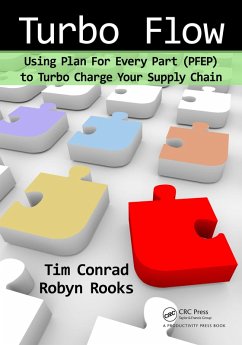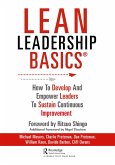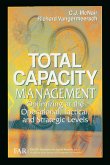Tapping into two decades of combined experience at Toyota Motor Manufacturing, the authors explains how to use PFEP to determine how much you need to build, the proper frequency for deliveries, how often you need to pick up from suppliers, and how much inventory you require.
- Presents an overview of PFEP for finished goods
- Discusses internal route planning and design using PFEP data
- Details external logistics and synchronization of manufacturing, logistics, and inventory cycles
For those willing to fundamentally change the way they do business, this book will light the path to more efficient and profitable supply chain management.
Dieser Download kann aus rechtlichen Gründen nur mit Rechnungsadresse in A, B, BG, CY, CZ, D, DK, EW, E, FIN, F, GR, HR, H, IRL, I, LT, L, LR, M, NL, PL, P, R, S, SLO, SK ausgeliefert werden.
-Mike Hoseus, Co-Author of Toyota Culture, Former General Manager, Toyota Motor Manufacturing Kentucky
Tim and Robyn have taken the PFEP to another level. Their detailed approach of applying PFEP principles to the entire supply chain will help any company eliminate waste and make progress on their lean journey.
-Earl D. Wilson, Co-Author of Making Materials Flow, President, Wilson Lean Concepts, Inc.
Robyn and Tim so humbly point out that every part has a story, and you have to listen to that story. This is a subtle, but very important point.... Plan for Every Part (PFEP) builds the foundation for supply chain excellence and if truly embraced, will lead to a sustainable competitive advantage with your customers.
-John Bohenick, Executive, Consultant, Board Director, & Former President of the Gates Corporation
A must read for any organization creating a lean enterprise by improving speed in the supply chain.
-Tribby Warfield, Gates Corporation, President, Power Transmission Division North America









